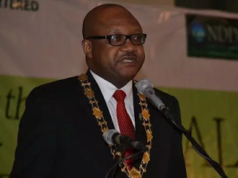
Politics in Nigeria: Why reform is so hard – June 25th 2014 via The Economist
Onr of Nigeria’s most reform-minded and articulate governors has been ousted in an election in Ekiti, a South-Western state, by a populist who was once impeached following charges, albeit unproven, of embezzling public money. The vote was deemed generally free and fair. The result highlights public resistance to political reform.
The incumbent governor, Kayode Fayemi, a member of the All Progressives Congress, Nigeria’s main opposition, was trounced by Ayo Fayose of the People’s Democratic Party (PDP), the party that rules Nigeria at the federal level and is backed by the president, Goodluck Jonathan. It was a big win for the government, which hitherto controlled none of Nigeria’s six south-western states and has been struggling with internal divisions; several PDP governors have defected to the opposition. By gaining a gubernatorial foothold in Ekiti the PDP’s chance of victory in next year’s presidential election looks brighter.
In dismissing a forward-thinker, the voters sent out a loud message.
After coming to power in 2010, Mr Fayemi laid new roads, improved the university system, presented a plan to get more young people into jobs, created a social-security scheme for the elderly, and cut corrupt wage payments to government workers. But such reforms upset people with a vested interest in the old political system…
Indeed, the election was a clash between appeals to good governance on the one hand and the lure of old-school clientelism and populism on the other. Despite Ekiti having a relatively well-educated electorate, the old ways prevailed. This does not bode well for political reform across the country.





![[Music] Solowskid – “JUNE” (It your birthday)](https://www.erockcity.com/wp-content/uploads/2018/06/SOLOWSKID-JUNE-ART-100x75.jpg)
